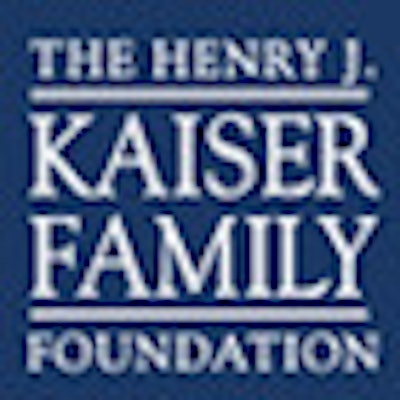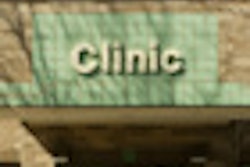
The Kaiser Family Foundation has joined the chorus of public health organizations decrying the lack of access to oral healthcare services for underserved populations and its impact on the health and well-being of children and adults across the U.S.
In a public forum on dental care coverage and access held June 19 in Washington, DC, representatives of the foundation and a panel of stakeholders from organized dentistry and public health shared the stage with the producer of a PBS documentary on America's oral health crisis that will air June 26.
The documentary, "Dollars and Dentists," was produced in collaboration with the Center for Public Integrity. It takes an in-depth look at what the filmmakers call a "ruptured dental care system."
"I've covered healthcare on and off for 15 years, and I was embarrassed when I realized that this is an issue I knew very little about until doing this project," said Jill Rosenbaum, who produced "Dollars and Dentists" for PBS Frontline. "This film was an eye-opener. The majority of the people who are more affluent get care in a private system that works very well for them and for their dentists. But for the rest of those who are not in that system, it is a catch-as-catch-can situation."
“The people who care about this issue are the heroes.”
— Terry Dickinson, DDS
Oral health is often overlooked as part of individual health and wellness in this country, noted Diane Rowland, executive vice president of the foundation.
"Today we hope to shine a spotlight on the critical issues underlying oral health, raise awareness of these issues, and hopefully stimulate some action to improve access to oral health services," she said.
After viewing a preview of the PBS documentary, the panel shared their experiences and opinions on Medicaid, workforce challenges, the oral health needs of elderly patients, and the need for dentists and physicians to work together to address the oral health of the very young.
"The people who care about this issue are the heroes," said Terry Dickinson, DDS, director of the Virginia Dental Association and founder of Mission of Mercy. "One of the things I have learned in all of this is the importance of collaboration. We must stop talking past each other and talk to each other."
Overcoming workforce challenges
Joining Dr. Dickinson on the panel were Marcia Brand, RDH, PhD, deputy administrator of the Health Resources and Services Administration (HRSA); Debony Hughes, DDS, chief of the dental health program at the Prince George's County, MD, health department; and Greg Nycz, executive director of the Marshfield Family Health Center in Wisconsin, which partners with the Marshfield Clinic to provide affordable dental services.
One of the obstacles to expanding access to care is the notion that dental care often takes a back seat to all other medical care, Nycz noted.
"I find it odd that, when you think about Medicaid policy, most states provide dental coverage for children but not for adults," he said. "Why do they provide adult dermatology coverage, but not adult dental coverage? Is the skin more important than the oral cavity?"
Workforce issues are also a challenge in many parts of the country, Nycz emphasized. In Wisconsin, for example, 30% of the dental workforce is going to disappear over the next 20 years, and rural areas of the state will be hardest hit. This trend is what prompted the Marshfield Clinic to pursue building Wisconsin's second dental school, he noted.
"In Maryland, the numbers are there, but only about 10% of dentists participate in Medicaid," Dr. Hughes said. "There isn't a dentist shortage, but a shortage in the number that treat the underserved."
HRSA is also addressing the workforce issue by trying to bring physicians and other medical professionals into the dental care loop, Brand emphasized.
"One of the things HRSA has been working on is, who else do we engage?" she said. "How can we expand the workforce that thinks about oral healthcare? So we are trying to engage physicians, nurses, and nurse practitioners who could do some basic dental services. They need to look in the patient's mouth, do some basic risk assessment, and provide some basic services. If you can get them to think about this, to look in the child's mouth, it would go a long way toward addressing this issue."
Panel moderator Jackie Judd, vice president of the Kaiser Family Foundation, asked if dental therapists were a viable part of the solution as well.
"The question we are all trying to answer is, how do we get care to the populations that really need it? And this is one of many solutions," Dr. Dickinson said. "I have kept a close eye on this, and I do have some concerns about the supervision issue. The populations that I see are medically compromised, of a very complex nature. So from my experience seeing thousands of patients and the complexities of their medical condition, I do have some concerns."
In conjunction with the event, the Kaiser Foundation also released three related policy briefs that provide background and data on these issues as well: "Children and Oral Health: Assessing Needs, Coverage, and Access," "Oral Health and Low-Income Nonelderly Adults: A Review of Coverage and Access," and "Oral Health and Medicare Beneficiaries: Coverage, Out-of-Pocket Spending, and Unmet Need."



















